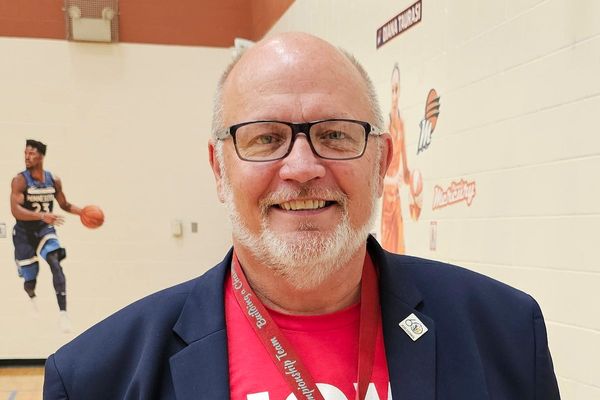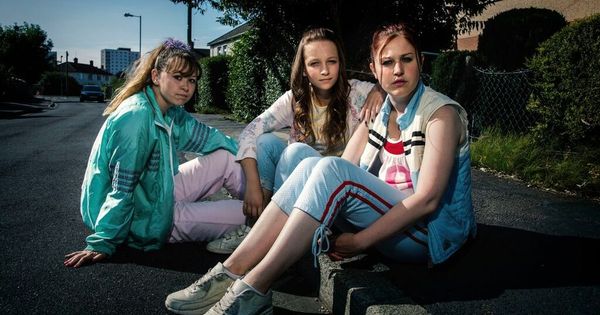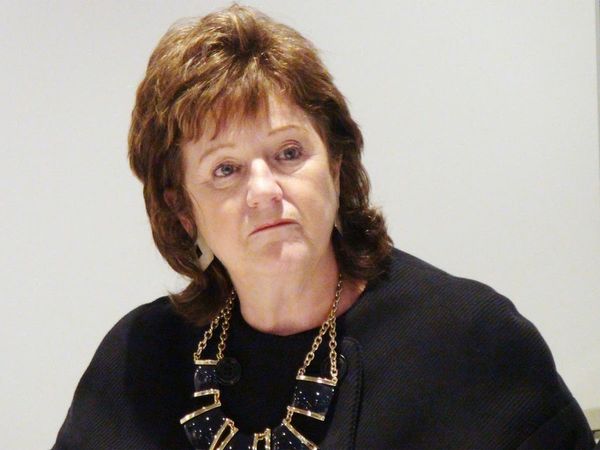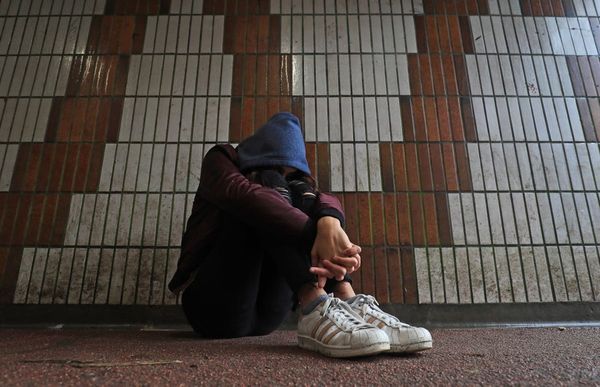An inquiry has found evidence of organised child sexual abuse and exploitation by criminal gangs and networks in Swansea, but accused police and other authorities of downplaying the scale of it over concerns about negative publicity.
Swansea was one of six case study areas looked at by the Independent Inquiry into Child Sexual Abuse (IICSA) which found "extensive failures" in the way child sexual exploitation by criminal gangs was tackled.
It spoke to child victims in the case study areas, some of whom reported being raped, abused, and in one case, not in Swansea, forced to perform sex acts on a group of 23 men while held at gunpoint, and concluded that they were often blamed by authorities for the ordeals they suffered while some were even slapped with criminal records for offences closely linked to their sexual exploitation.
The report said there was "a flawed assumption" that child sexual exploitation was "on the wane", with councils and police forces denying the scale of the problem, despite evidence to the contrary.
It concluded this might be down to a determination to assure they were not seen as "another Rochdale or Rotherham" - towns blighted by recent child sexual exploitation revelations - rather than a desire to "root out ... and expose its scale".
Swansea Council has said it has robust systems in place to support young people, but that it supports all of the recommendations made by the panel and is actively implementing the findings detailed in the report’s conclusions.
Professor Alexis Jay, who chaired the inquiry, said: "The sexual exploitation of children by networks is not a rare phenomenon confined to a small number of areas with high-profile criminal cases.
"We found extensive failures by local authorities and police forces in the ways in which they tackled this sexual abuse. There appeared to be a flawed assumption that child sexual exploitation was on the wane, however it has become even more of a hidden problem and increasingly underestimated."
The report, the 18th from the IICSA since it was established, featured harrowing testimony from more than 30 young witnesses across the six case study areas - Swansea, Bristol, Durham, St Helens, Tower Hamlets and Warwickshire.
The inquiry team said it "did not receive a reliable picture of child sexual exploitation" from these areas, with the data often "confused and confusing".
It said there was evidence of child sexual exploitation by networks in all six areas, but that the relevant police forces were "generally not able to provide any evidence about these networks".
Two areas - Swansea and Tower Hamlets - said there was no data to suggest there had been any child exploitation by gangs, despite evidence to the contrary. The report said that in relation to Swansea there were examples of child sexual exploitation by groups in the evidence seen by the Inquiry which should have been identified by the police.
The report said: "In the evidence disclosed to us, there were examples in Swansea of child sexual exploitation by organised networks, using the Inquiry’s definition. For example, four individuals were described in an October, 2019, report as “linked in one way or another to each other” and displaying “inappropriate sexual behaviour towards vulnerable young persons”.
It said there were "also networks referred to" by Swansea Council in two other case studies.
"These instances of exploitation by networks or groups should have been identified by the police and the local authority. However, South Wales Police incorrectly told us that there were no data to suggest sexual exploitation by organised networks, whether according to the inquiry’s definition or at all, and “no data to support suggestions that there is a gang-related CSE (child sexual exploitation) issue within the Swansea area.
"Detective Chief Superintendent Daniel Richards accepted in evidence that “there is a likelihood that there are organised criminal networks that we haven’t discovered” and that increased county lines activities meant there was an increased likelihood of sexual exploitation."
The inquiry said Swansea had reported 57 children identified as being at risk of child sexual exploitation and being monitored on its child sexual exploitation protocol in 2017/18, reducing to 39 the following year. In the two years to March, 2019, 106 children were referred because of sexual exploitation concerns and 92 children were discussed at multi-agency strategy meetings. In the two years to March, 2019, South Wales Police stated it had recorded 74 Swansea incidents with a child sexual exploitation flag. In the 2019 calendar year only four ‘direct contact’ offences were investigated.
The report said there was also evidence of missed opportunities for disruption of sexual exploitation of children in particular cases in Swansea.
"An internal review conducted by South Wales Police in March, 2020 identified a series of missed disruption opportunities in relation to alleged perpetrators. One was the subject of similar allegations in the past (regarding sexual exploitation of young people doing work experience with him) but was never spoken to formally, with the case being closed with no rationale given," it said.
"No child sexual exploitation ‘flag’ was placed on his record; no referral was made for him to be discussed as a ‘Potentially Dangerous Person’; and no application for an SRO (sexual risk order) was made even though “the frequency and similarities of the allegations would have made him a likely candidate” for such an order.
"Other similar issues were identified in relation to other alleged perpetrators outside of Swansea but within the force area. In light of his experience in collating evidence for the inquiry, Detective Chief Superintendent Daniel Richards confirmed that South Wales Police would carry out a similar review of all individuals identified as actual or potential perpetrators of child sexual exploitation, to assess the management of the risk they pose and how that is being managed, on an annual basis."
The report concluded: "It was clear from the evidence that none of the police forces or local authorities in the case study areas in this investigation had an accurate understanding of networks sexually exploiting children in their area."
There were also examples of victim-blaming, the report found, with children being described as "promiscuous" and "putting themselves at risk" in referrals to a support charity in St Helens. Similar language about victims' behaviour was reflected across the inquiry.
In Swansea, a child was described on official paperwork as having had "sexual partners from the age of 11" - this is despite children under the age of 13 not being considered by law to be able or competent to give consent to sexual activity.
Victims, many of whom had a history of self-harm and running away from home, repeatedly described how their allegations against their perpetrators were routinely dismissed by police.
In some cases, children were even landed with criminal records.
In one case, a girl abused from the age of 12 described how she was convicted of several offences including possession of a weapon after chasing her abuser with a bread knife after he assaulted her.
The report said: "The prospect of receiving a criminal conviction may deter children from disclosing child sexual exploitation, and indeed may serve to increase the hold that perpetrators have over their victims.
"The focus should be on investigating the criminal conduct of sexual exploitation, not sanctioning children for what is frequently low-level antisocial behaviour."
Find out about crime levels where you live:
The report said senior leaders within local authorities and police forces must take the lead on "eradicating attitudes and behaviours which suggest that children who are victims of exploitation are in some way responsible for it".
It identified a number of recommendations including a requirement for police forces and local authorities to collect specific data on all cases of known or suspected child sexual exploitation, including by criminal gangs and organised networks.
The final overarching IICSA report, taking in all 19 strands of the inquiry such as investigations into abuse in Westminster and the church, is expected to be laid before Parliament later this year.
A spokesperson for Swansea Council said: "Our number one priority is protecting children from sexual exploitation. We have robust systems in place to support our young people when concerns are raised.
"When we met with the panel we were already developing better ways of safeguarding children and have made significant changes to improve the way we work together to protect all young people - including boys, young people with disabilities, young people from ethnic minority backgrounds and LGBT+. However we know we can always improve.
"A huge amount of work has been done in recent years between the council, police, partner agencies and experts on improving safeguarding, and we note that the inquiry highlighted some good practice and recognised where some improvements have been made.
"The report is clear that Swansea faces the same challenges as the rest of the country and we support all of the recommendations made by the panel and are actively implementing the findings detailed in the report’s conclusions.
"In Swansea we are determined to make sure that all young people have access to the right support at the right time, from people they trust, in a place that is safe for them."
Assistant Chief Constable Dave Thorne of South Wales Police, said: “South Wales Police has welcomed the opportunity to engage and contribute to this important investigation and has been fully committed to supporting the Inquiry from the outset. We will continue to be relentless in our pursuit of justice for all victims of sexual abuse and exploitation, whenever the offence took place.
“The report highlights areas of good practice and identifies areas where improvement was needed. We acknowledge that we must all work harder to ensure that victims have the confidence to come forward and report what has happened to them.
“We are fully committed to learning the lessons of past investigations to ensure we can protect vulnerable people and provide them with the best level of support and investigate allegations to the very highest standards.
“We are working hard to address the issues regarding the recording of important information such as ethnicity, disability and other protected characteristics on police systems which will help us build up a more informative picture.
“Many of the recommendations and good practice identified in this report have already been embedded across our work. While different forms of children sex abuse has evolved over time, so have our practices and our investment in this complex area of policing, with more specialist officers working daily to protect vulnerable people than ever before. We welcome the recommendations made by the Inquiry especially any changes to the law which allow for greater sanctions for those who exploit children in this way.
“We now work far closer and effectively with a range of partner agencies to spot signs of sexual abuse and exploitation far earlier so we are able to offer intervention to support victims and bring offenders to justice.
“Investigating non-recent allegations of child sexual abuse has required us to invest in dedicated resources with specialist officers and staff to investigate allegations of this nature.
“The relationship between survivors and the police is now one of predominantly trust and positivity and offers a far more effective service to victims and survivors.
“We have countless examples of where victims of non-recent abuse have had the trust and confidence in policing to come forward to report their experiences, where they have been believed and an investigation of the highest standard has resulted in perpetrators being sent to prison for offences committed several decades earlier. It is pleasing to note that our work to disrupt this area of criminality has been recognised by the Inquiry.
“We need to ensure that all victims of child sexual abuse are properly supported once they have made the brave first step of coming forward to report the abuse to which they have been subjected.
“I believe that we have demonstrated our commitment to protecting children from sexual abuse and exploitation now and in the future, as an organisation and as an integral member of the wider network of partners who keep young people safe.
“We welcome the recommendations and will now need to consider the detail of the report which will allow us to improve the service to victims as well as those who are at risk of exploitation. We will continue to play an active part in implementing those recommendations which are for policing nationally and our partners.
“I encourage anyone who considers that they or someone close to them may be experiencing such abuse or be at risk of such abuse to come forward and report it to police.”
Reacting to the report, Swansea Council opposition leader Chris Holley called for an enquiry within the authority - to include South Wales Police - about what had taken place.
He also requested that the council's cabinet member for children's services, Cllr Elliott King, answered questions.
Cllr Holley said it was "all very well parading new developments" in Swansea but that the most vulnerable in society had not been looked after in the instances described in the report. "And I want to know why."
Council leader Rob Stewart said: “Swansea was one of six areas chosen at random as part of this important review. The cases are drawn from these six areas. The review found similar issues for all six geographical areas and made recommendations for the whole of England and Wales.
“The report covers an extensive historical period back to the point where Swansea’s Children’s Services were emerging from special measures following significant failings by Cllr Holley’s Lib Dem administration.”
Cllr King added: “We have continued to invest and strengthen services since 2012. While the report highlights that criminal networks continue to find new despicable ways to attempt to exploit vulnerable children we will continue to do all we can to keep children safe.
“I’m very proud of the work our staff do day in, day out to tackle child sexual exploitation. The report has highlighted the far reaching improvements and developments that have taken place.
“We will be proposing further additional significant investments in children’s services as part of this year’s budget.”
Get stories like this straight to your inbox with our newsletters.










